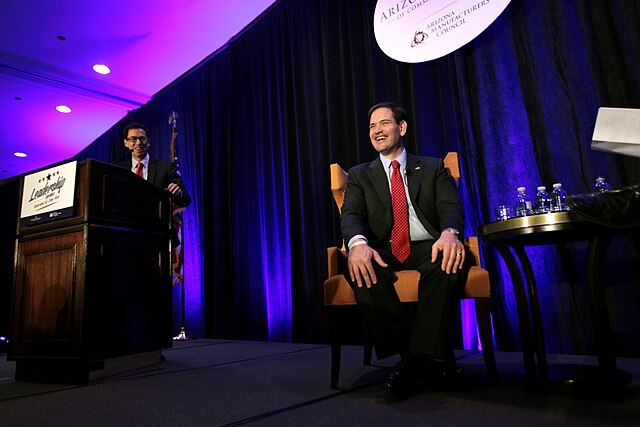Judge holds that Trump’s AEA deportations are illegal

Leaving aside that the administration has been unwilling to even conform to the procedures of the statute it is invoking to kidnap people and try to deport them for writing op-eds, guilt by in-law association, guilt by random tattoos, etc., the Alien Enemies Act obviously does not confer authority to the executive branch to conduct deportations in these circumstances:
A federal judge on Thursday permanently barred the Trump administration from invoking the Alien Enemies Act, an 18th-century wartime law, to deport Venezuelans it has deemed to be criminals from the Southern District of Texas, saying that the White House’s use of the statute was illegal.
The decision by the judge, Fernando Rodriguez Jr., was the most expansive ruling yet by any of the numerous jurists who are currently hearing challenges to the White House’s efforts to employ the powerful but rarely invoked law as part of its wide-ranging deportation plans.
The 36-page ruling by Judge Rodriguez, who was appointed by President Trump, amounted to a philosophical rejection of the White House’s attempts to transpose the Alien Enemies Act, which was passed in 1798 as the nascent United States was threatened by war with France, into the context of modern-day immigration policy.
The Supreme Court has already said that any Venezuelans the White House wants to expel under Mr. Trump’s proclamation invoking the act must be given a chance to challenge their removal. But Judge Rodriguez’s ruling went further, saying that the White House had improperly stretched the meaning of the law, which is supposed to be used only against members of a hostile foreign nation, in times of declared war or during a military invasion.
While Judge Rodriguez’s decision applied only to Venezuelan immigrants in the Southern District of Texas — which includes cities like Houston, Brownsville and Laredo — it could have an effect, if not a binding one, on some of the other cases involving the administration’s use of the Alien Enemies Act.
“The court concludes that as a matter of law, the executive branch cannot rely on the A.E.A., based on the proclamation, to detain the named petitioners and the certified class, or to remove them from the country,” Judge Rodriguez wrote.
He also found that the “plain ordinary meaning” of the act’s language, like “invasion” and “predatory incursion,” referred to an attack by “military forces” and did not line up with Mr. Trump’s claims about the activities of Tren de Aragua, a Venezuelan street gang, in a proclamation invoking the Alien Enemies Act.
And as Judge Rodriguez observes, this is not a case where there’s.a norm where the statutory authority has historically construed more broadly than it might seem on its face. It has previously invoked only in a handful of actual wars, and not since World War II:
Before this year, Presidents of the United States had invoked the AEA in connection with three wars. First, during the War of 1812, President James Madison issued a proclamation and required subjects of Great Britain and Ireland “to report themselves to the marshal of the state in which such aliens resided.”More than a century later, in 1917 and after the United States had declared war against Germany and entered World War I, President Woodrow Wilson invoked the statute and curtailed the ability of German aliens to own weapons or travel freely, and also provided for their possible confinement.
Finally, one day after the attack on Pearl Harbor in 1941, President Franklin Delano Roosevelt made “public proclamation . . . that an invasion has been perpetrated upon the territory of the United States by the Empire of Japan.” The next day, he further proclaimed “that an invasion or predatory incursion is threatened upon the territory of the United States by Germany.” In July 1945, after the Axis powers in Europe had unconditionally surrendered, President Harry Truman issued an amended proclamation that permitted the removal of Japanese, German, Italian, Bulgarian, Hungarian, and Romanian aliens whom the Attorney General deemed “to be dangerous to the public peace and safety of the United States because they have adhered to the aforesaid enemy governments or to the principles of government thereof.”
Because there is not an “invasion” or “predatory incursion” based on how the statutory text has always been interpreted, “the President’s invocation of the AEA through the Proclamation exceeds the scope of the statute and, as a result, is unlawful. Respondents do not possess the lawful authority under the AEA, and based on the Proclamation, to detain Venezuelan aliens, transfer them within the United States, or remove them from the country.”
The textualist analysis here is unanswerable, which will be good news until Sam Alito invents the “Trump Questions Doctrine.”
